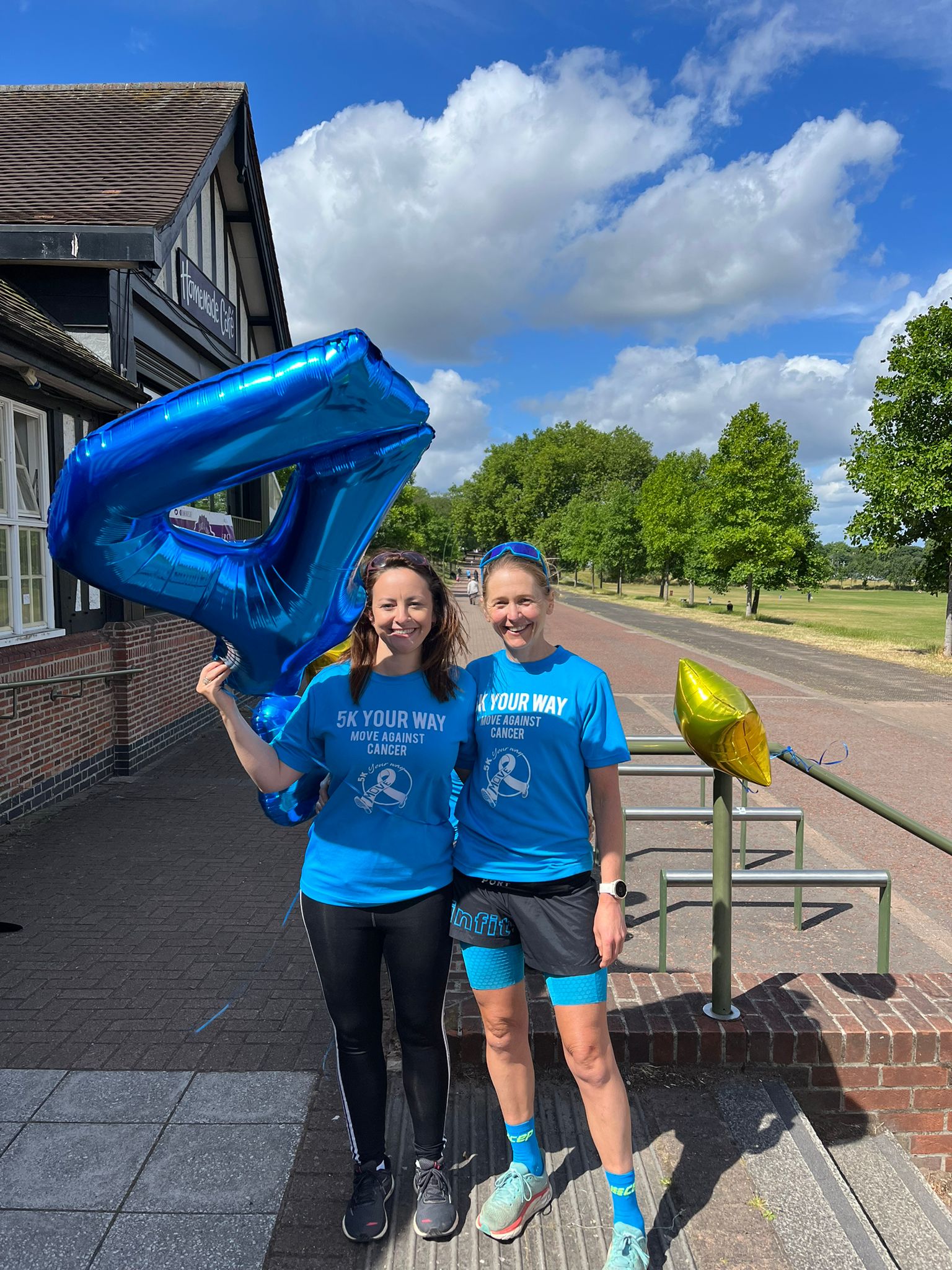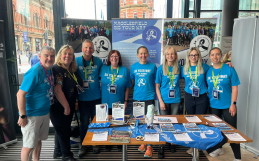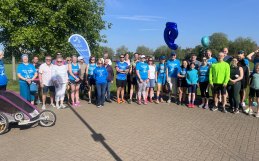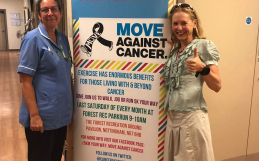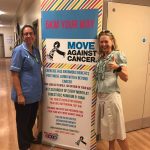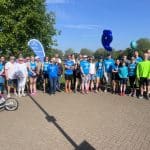As an oncologist, I’m used to patients dying. It’s always sad and some patients affect you more than others. Indeed, some affect you more than they would perhaps ever know. Yet somehow, knowing you’ve been able to make a difference to their life and even to their death makes their dying a little bit easier to process. Odd though it sounds, it’s always easier to break bad news than it is to watch bad news being broken. I guess there is something about being in control and being able to do something, even if it’s just giving the worst news sensitively, that lessens the pain. And the doctor patient relationship by its nature creates barriers that, for me at least, make death easier to compartmentalise.
However, even for an oncologist, friends dying is different. Back in 2018, along with Gemma Hillier-Moses, I co-founded 5K Your Way, Move Against Cancer (5KYW), an initiative now provided by Move charity, that encourages anybody affected by cancer in any way to walk, jog, run, cheer or volunteer at parkruns on the last Saturday of every month. Our meet-ups are, for the most part, joyous monthly meet-ups of people affected by cancer in various ways. Some on treatment, some off treatment. Some hopefully cured, some on treatment for life. Their friends and families. Sometimes their health-care professionals.
When we started the initiative, I’d never really thought about the implications of creating an active support group for people with cancer. I’d never really thought about the implications of getting to know people who weren’t my patients and how those relationships might develop. And I’d never really thought about the fact that, inevitably, in a cancer support group, over time people would die and how that might affect the group and me personally.
I was first forced to reflect on this early. A young man in his early twenties who came to the very first meet-up died very suddenly from sepsis. We learnt of his death through social media. I would always be affected by anyone of that age who dies suddenly but I do remember being hit by a wave of grief I wouldn’t normally experience as a doctor. It surprised me; I’d only met him once. Why had his death affected me more than many of my patients who I had known for much longer?
Our group in Nottingham has been running for over 4 years now and over time, many of the people who come regularly have become friends. I’m not their doctor. Any professional barrier that would normally exist isn’t there and I love this. Sport is a leveller that negates the social factors that normally influence friendships. Age. Education. Sex. Politics. Whether or not they have cancer. Whether their cancer has spread or not.
As a doctor, I feel hugely privileged to be able to develop these relationships with people being treated in my hospital but not by me. Most of the time, we talk about the good things in life. We celebrate the walking and running. We exchange holiday stories; share restaurant tips; talk about our families. Sometimes I get snippets about their health or their treatment. More often I get gossip about their consultant or nursing team. I get to hear what their real frustrations are with the system I work in; what really makes a difference to them. And I get a small window into the emotional rollercoaster of someone living with the disease I spend my working life treating, a window that I would never get from talking to someone as their doctor.
But this is a cancer support group. And inevitably, while, as with all clubs, people come and go, in a cancer support group sometimes people die. How should we deal with death in an alternative cancer support group like 5KYW that is not focused on talking about cancer but instead on embracing life? How do we provide the boost and positive energy to new members while, at the same time, grieving for someone whose cancer has progressed, someone who is too poorly to attend or someone who has died. I worry what it might be like for someone with cancer who is relatively new to the group if we spend time celebrating the life of someone who has died. Yet for those of us who knew the person well it’s important to acknowledge that they are gone, to acknowledge that they are missed and to not hide that we are sad.
I guess, in this situation, there are no guidelines, there are no rules. There probably is no right or wrong; what’s right for some will be wrong for others. What’s right one month will be wrong another. What’s right for one group will be wrong for another. And I guess, maybe, just acknowledging this does, by itself make things slightly easier.
But I’m also realising that it’s important to acknowledge the personal challenges that come from being part of a cancer support group. By joining a group like this, whether you have cancer or not, you’re deliberately opening yourself to the possibility of forging friendships with people who may die. I’m not sure I’d really thought about this when we first started 5KYW.
I know that 5KYW can and does have a huge impact. I know that invariably, I come home happier. I know that the highs far outweigh the lows. But, if I’m honest, there are months where I wonder whether I really want to go. There are months when I want to protect myself from bad news. There are months where, quite selfishly, I think, I don’t want to build friendships with more people with cancer. There are months where I feel guilty that I don’t have cancer. And there’s a big chunk of self-doubt where I ask whether it is even right that I am part of a group like this.
If I was waiting for a scan result, would I want to be going to a meet-up with people who had already received the news I never wanted to receive? If my cancer had progressed, would I want to be going to a group with people who had finished treatment? I wonder sometimes, if I had cancer and had received bad news, would I want to be part of a group where people are happy and laughing and celebrating. Would that buoy me up or would it just emphasise what I might lose?
Our social media portrays the good bits of a cancer support group. The achievements. The can-do attitude. The taking back control. The camaraderie. The making the best of an awful situation. The embracing life. And for the most part, 5KYW meet ups are uplifting and happy occasions. But I guess that it’s OK to find it hard sometimes. It’s OK to get home and cry because another friend has told you their cancer has progressed. It’s Ok to feel guilty, to feel angry, to feel helpless, to feel sad.
Allowing ourselves to feel whatever we feel is so important.
And probably, we need to start talking about these challenges.
www.5kyourway.org
